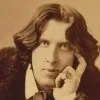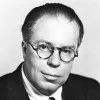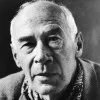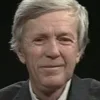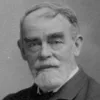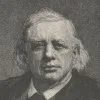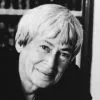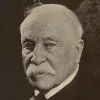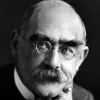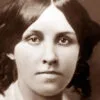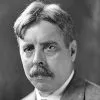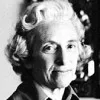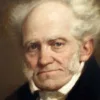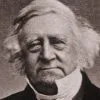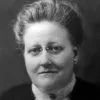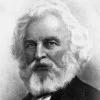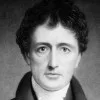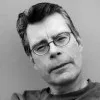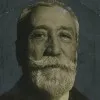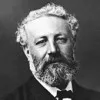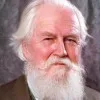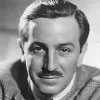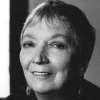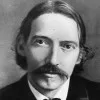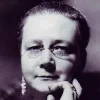At home we read Pinocchio instead. We read Black Beauty, Doctor Dolittle, Little Women, The Adventures of Huckleberry Finn. What I learned about darkness from stories, I learned from books like these — and also from the unedited works of the Brothers Grimm and Hans Christian Andersen.
According to a recent article in the New York Times, few parents expose their children to those works in the original these days, and some of their reasons make sense. Who wants children growing up with the idea that stepmothers are wicked, ugly people are evil, women can get by on their beauty, and princesses are all white? At the same time, I worry about children who grow up thinking that every story has a happy ending and no one gets permanently hurt along the way.Barbara Brown Taylor (b. 1951) American minister, academic, author
Learning to Walk in the Dark, ch. 1 (2014)
(Source)
Quotations about:
books
Note not all quotations have been tagged, so Search may find additional quotes on this topic.
Books have another value, to those who have fallen forever and wholly in love with them. There are those who would cheat for them, steal for them, lie for them, even if then they could never show or boast of their treasures to any other creature. Kill for them? It was not impossible.
Ellis Peters (1913-1995) English writer, translator [pseud. of Edith Mary Pargeter, who also wrote under the names John Redfern, Jolyon Carr, Peter Benedict]
The Heretic’s Apprentice, ch. 12 (1990)
(Source)
So, confronted with this hoard of stolen riches, the question of who writes or who does not write for children becomes unimportant and, in fact, irrelevant. For every book is a message, and if children happen to receive and like it, they will appropriate it to themselves no matter what the author may say or what label he gives himself. And those who, against all odds and I’m one of them — protest that they do not write for children, cannot help being aware of this fact and are, I assure you, grateful.
P. L. Travers (1899-1996) Australian-British writer [Pamela Lyndon Travers; b. Helen Lyndon Goff]
Essay (1978-07-02), “I Never Wrote for Children,” New York Times
(Source)
I sidled through the doorway. It was necessary to sidle since precariously arranged books impinged more and more every day on the passageway from the street. Inside, it was clear that the books owned the shop rather than the other way around. Everywhere they had run wild and taken possession of their habitat, breeding and multiplying and clearly lacking any strong hand to keep them down.
The books that the world calls immoral are books that show the world its own shame.
Oscar Wilde (1854-1900) Irish poet, wit, dramatist
The Picture of Dorian Gray, ch. 19 [Lord Harry] (1891)
(Source)
Shelved rows of books warm and brighten the starkest room, and scattered single volumes reveal mental processes in progress — books in the act of consumption, abandoned but readily resumable, tomorrow or next year. By bedside and easy chair, books promise a cozy, swift, and silent release from this world into another, with no current involved but the free and scarcely detectable crackle of brain cells. For ease of access and storage, books are tough to beat.
John Updike (1932-2009) American writer
Essay (2000-06-18), “Books Unbound, Life Unraveled,” New York Times
(Source)
Collected as "A Case for Books," Due Considerations: Essays and Considerations (2007).
You do not chop off a section of your imaginative substance and make a book specifically for children, for — if you are honest — you have no idea where childhood ends and maturity begins. It is all endless and all one.
P. L. Travers (1899-1996) Australian-British writer [Pamela Lyndon Travers; b. Helen Lyndon Goff]
Essay (1978-07-02), “I Never Wrote for Children,” New York Times
(Source)
Authors are actors, books are theaters.
Writing is perhaps the greatest of human inventions, binding together people, citizens of distant epochs, who never knew one another. Books break the shackles of time, proof that humans can work magic.
Carl Sagan (1934-1996) American scientist and writer
Cosmos, ch. 11 “The Persistence of Memory” (1980)
(Source)
Books that children read but once are of scant service to them; those that have really helped to warm our imaginations and to train our faculties are the few old friends we know so well that they have become a portion of our thinking selves.
Printer’s ink has been running a race against gunpowder these many, many years. Ink is handicapped, in a way, because you can blow up a man with gunpowder in half a second, while it may take twenty years to blow him up with a book. But the gunpowder destroys itself along with its victim, while a book can keep on exploding for centuries.
Christopher Morley (1890-1957) American journalist, novelist, essayist, poet
The Haunted Bookshop, ch. 6 [Roger Mifflin] (1919)
(Source)
A book is not only a friend, it makes friends for you. When you have possessed a book with mind and spirit, you are enriched. But when you pass it on you are enriched threefold.
Henry Miller (1891-1980) American novelist
The Books in My Life, ch. 1 “They Were Alive and They Spoke to Me” (1952)
(Source)
We find a book eloquent not only when it forms our emotions, but also when it fortifies our opinions.
[Nous trouvons éloquent dans les livres, non-seulement tout ce qui augmente nos passions, mais aussi tout ce qui augmente nos opinions.]Joseph Joubert (1754-1824) French moralist, philosopher, essayist, poet
Pensées [Thoughts], ch. 23 “Des Qualités de l’Écrivain [Of the Qualities of Writers],” ¶ 157 (1850 ed.) [tr. Collins (1928), ch. 22]
(Source)
(Source (French)). Alternate translation:
In books we take for eloquence not only all that strengthens our passions, but also whatever strengthens our opinions. [tr. Lyttelton (1899), ch. 22, ¶ 74]
We find little in a book but what we put there. But in great books, the mind finds room to put many things.
[On ne trouve guère dans un livre que ce qu’on y met. Mais dans les beaux livres, l’esprit trouve une place où il peut mettre beaucoup de choses.]
Joseph Joubert (1754-1824) French moralist, philosopher, essayist, poet
Pensées [Thoughts], ch. 23 “Des Qualités de l’Écrivain [Of the Qualities of Writers],” ¶ 212 (1850 ed.) [tr. Lyttelton (1899), ch. 22, ¶ 98]
(Source (French)). Alternate translation:There is little to be found in a book beyond what you bring to it. But in fine books the mind finds place to put many things.
[tr. Collins (1928), ch. 22]
Few books can please us throughout life. For some we lose all liking as we grow in age, wisdom, or good sense.
[Peu de livres peuvent plaire toute la vie. Il y en a dont on se dégoûte avec le temps, la sagesse ou le bon sens.]
Joseph Joubert (1754-1824) French moralist, philosopher, essayist, poet
Pensées [Thoughts], ch. 23 “Des Qualités de l’Écrivain [Of the Qualities of Writers],” ¶ 178 (1850 ed.) [tr. Attwell (1896), ¶ 375]
(Source)
(Source (French)). Alternate translations:Few books give life-long pleasure. There are some for which, with the growth of time, wisdom, and good sense, we lose all taste.
[tr. Lyttelton (1899), ch. 22, ¶ 84]
Library books were, I suddenly realized, promiscuous, ready to lie in the arms of anyone who asked. Not like bookstore books, which married their purchasers, or were brokered for marriages to others.
With books, as with companions, it is of more consequence to know which to avoid, than which to chuse; for good books are as scarce as good companions, and in both instances, all that we can learn from bad ones, is, that so much time has been worse than thrown away.
Charles Caleb "C. C." Colton (1780-1832) English cleric, writer, aphorist
Lacon: Or, Many Things in Few Words, Vol. 1, Preface (1820)
(Source)
The walls of books around me, dense with the past, formed a kind of insulation against the present world and its dangers. I hated to get up.
Ross Macdonald (1915-1983) American-Canadian author [pseud. of Kenneth Millar]
The Chill, ch. 8 (Lew Archer) (1963)
(Source)
Often misquoted in the third person ("The walls of books around him ...")
Books are the bees which carry the quickening pollen from one to another mind.
James Russell Lowell (1819-1891) American diplomat, essayist, poet
“Nationality in Literature,” North American Review, Article 10 (1849-07)
(Source)
Reviewing Henry Wadsworth Longfellow, Kavanagh (1849).
Of all authors, I despise none more than the compilers, who go off in all directions looking for bits and pieces of other writers’ works, which they then stick into their own, like pieces of turf into a lawn; they’re in no way superior to those printer’s typesetters, who arrange letters which, combined together, make a book, to which they contributed only the manual labour. I would like the original texts to be respected; I feel it’s a kind of profanation, to extract the pieces which make them up from the sanctuary where they belong, and expose them to a contempt they do not deserve. When a man has nothing new to say, why does he not keep silent?
[De tous les auteurs, il n’y en a point que je méprise plus que les compilateurs, qui vont, de tous côtés, chercher des lambeaux des ouvrages des autres, qu’ils plaquent dans les leurs, comme des pièces de gazon dans un parterre: ils ne sont point au-dessus de ces ouvriers d’imprimerie qui rangent des caractères, qui, combinés ensemble, font un livre où ils n’ont fourni que la main. Je voudrois qu’on respectât les livres originaux; et il me semble que c’est une espèce de profanation de tirer les pièces qui les composent du sanctuaire où elles sont, pour les exposer à un mépris qu’elles ne méritent point. Quand un homme n’a rien à dire de nouveau, que ne se tait-il?]Charles-Lewis de Secondat, Baron de Montesquieu (1689-1755) French political philosopher
Persian Letters [Lettres Persanes], Letter 66, Rica to *** (1721) [tr. Mauldon (2008)]
(Source)
It is unclear what Montesquieu / his character would have thought of quotation collections.
(Source (French)). Alternate translations:Of all Authors, there is none I despise more than the Compilers, who forage far and wide for Scraps of other Men's Works, which they piece into their own, like so many Dabs of Green Turf in a Flower-garden: they are not a whit superior to those that work in a Printing-house, who distribute the Types, which being put together make a Book, towards which they furnish'd nothing but Manual Labour. I am for having Original Authors reverenc'd: and, in my Judgment, 'tis a sort of Prophanation to drag, as it were out of their Sanctuary, Pieces of their Works, and expose them to a Contempt which they deserve not. If a Man has nothing new to say, why don't he hold his Tongue?
[tr. Ozell (1736 ed.), # 64]Of all kind of authors, there are none I despise more than compilers, who search every where for shreds of other men's works, which they join to their own, like so many pieces of green turf in a garden: they are not at all superior to compositors in a printing house, who range the types, wh:ch, collected together, make a book, towards which they contribute nothing but the labours of the hand. I would have original writers respected, and it seems to me, a kind of profanation to take those pieces from the sanftuary in which they reside, and to expose them to a contempt they do not deserve. When a man hath nothing new to say, why does not he hold his tongue?
[tr. Floyd (1762)]Of all the authors, there are none whom I despise more than compilers. They crowd from all quarters to pick up the shreds of other men’s works; these they fit into their own, as one would patch the turf of a lawn: they are not one whit superior to the compositor, whose type-setting may be called book-making if manual labor is all. I would have original books respected; and it seems to me a species of profanation, to take from them the matter of which they are composed, as if from a sanctuary, and expose it to an undeserved contempt. When a man has nothing new to say, why can’t he be quiet?
[tr. Davidson (1891)]There is no class of authors I despise more than I do compilers, who come from every side to search for the fragments of other men's works, which they wedge into their own, just as you would introduce patches of turf into the border of a flower-plot. They are not superior to printers who arrange characters in such a way as to produce a book, but whose manual labor has been all that has entered into its composition. I would have original books respected. It is a kind of profanation to tear from them the parts of which they are composed, as if from a sanctuary, and thereby expose them to a contempt they do not deserve.
[tr. Betts (1897)]Of all authors, I most despise the compilers, who search everywhere in the works of others for fragments which they then fit into their own, much as you would piece turf into a lawn. They are no better authors than the printers who select and combine letters and thus, contributing only their manual labor, make a book. I would have original books respected, and it seems to me that there is something profane in tearing constituent pieces from their sanctuary and exposing them to a scorn they do not deserve. When a man has nothing to say, why is he not silent?
[tr. Healy (1964)]Of all these authors, the ones I despise the most are the compilers, the ones who rummage through the works of others and tear off strips to patch into their own books, like bits of turf in a lawn. They are no better than the compositors who work for the printers, putting letters together so as to form a book; they have contributed nothing but the use of their hands. I think original books ought to be more respected, for I think it is a kind of profanation to take fragments out of their sanctuary and expose them to a contempt that they do not merit. When a man has nothing new to say, why does he not keep quiet?
[tr. MacKenzie (2014)]
It seems to be a wise provision of nature that the follies of men should be short-lived; but books interfere and immortalize them. A fool, not content with having bored all those who have lived with him, insists on tormenting generations to come; he would have his folly triumph over oblivion, which should have been as welcome to him as death; he wishes posterity to be informed of his existence, and he would have it remember for ever that he was fool.
[La nature sembloit avoir sagement pourvu à ce que les sottises des hommes fussent passagères, et les livres les immortalisent. Un sot devroit être content d’avoir ennuyé tous ceux qui ont vécu avec lui : il veut encore tourmenter les races futures, il veut que sa sottise triomphe de l’oubli, dont il auroit pu jouir comme du tombeau; il veut que la postérité soit informée qu’il a vécu, et qu’elle sache à jamais qu’il a été un sot.]
Charles-Lewis de Secondat, Baron de Montesquieu (1689-1755) French political philosopher
Persian Letters [Lettres Persanes], Letter 66, Rica to *** (1721) [tr. Davidson (1891)]
(Source)
Commonly paraphrased as "An author is a fool who, not content with having bored those who have lived with him, insists on boring future generations."
(Source (French)). Alternate translations:Nature seems wisely to have provided that the Follies of Men shou'd pass away, but Books perpetuate them. A Fool ought to be satisfy'd with having teaz'd those who liv'd at the same Time with him: but he is for going further, and is resolved to plague the Generations to come he is resolv'd to make his Impertinence triumph over Oblivion, which he might have enjoy'd as well as his Grave: he will have Posterity know that such a one liv'd, and all future Ages be inform'd that he was a Fool.
[tr. Ozell (1736 ed.), Letter 64]Nature seems to have provided, that the follies of men should be transient, but they by writing books render them permanent. A fool ought to content himself with having wearied those who lived with him: but he is for tormenting future generations; he is desirous that his folly should triumph over oblivion, which he ought to have enjoyed as well as his grave; he is desirous that posterity should be informed that he lived, and that it should be known for ever that he was a fool.
[tr. Floyd (1762)]Nature has wisely provided that the follies of men should be ephemeral; but, unhappily, these very follies are immortalised in books. A fool ought to have been satisfied with boring all those who have lived with him; yet he insists on torturing future races; he is determined that his folly shall triumph over the oblivion in which he ought to have been able to find as much enjoyment as he does in his last slumber; he wishes posterity to know that he has lived, and remember forever that he was a fool.
[tr. Betts (1897)]While nature seems wisely to have provided that the stupidities of men should be transient, books immortalize them. A fool should be content with boring everyone who has lived with him, but he further undertakes to torment future generations. He wants his folly to triumph over the oblivion which he should welcome like the sleep of the tomb; he wants to inform posterity that he has lived, and to have it forever remembered that he was a fool.
[tr. Healy (1964)]Nature in her wisdom seems to have arranged for man's follies to be short-lived, and books render them immortal. A fool ought to be satisfied with having bored all his own contemporaries, but he also seeks to torment those as yet unborn; he wants his stupidity to triumph over oblivion, which he might, like the tomb, have enjoyed; but no, he wants posterity to be notified that he has lived, and he wants her to know, for all eternity, that he was an idiot.
[tr. Mauldon (2008), Letter 64]Nature has so arranged things that the absurdities men say are passing things, but books give them immortal life. A fool ought to have been content to have annoyed those who live near him, but instead he wants the chance to torment future generations. He wants his absurdities to triumph over the complete oblivion that he really ought to have welcomed and enjoyed like a tomb. He wants posterity to be informed that he lived, and he wants it known for all time that he was a fool.
[tr. MacKenzie (2014), Letter 64]
Vacation cruises are advertised as luxurious journeys to exotic places, but a chief pleasure is the reading of books [….] On steamer chairs topside or poolside, in the lounges, everywhere you see men and women with their noses in books, devouring them for hours. The Book: Man’s Chief Weapon Against Tedium. Woman’s too.
Garrison Keillor (b. 1942) American entertainer, author
“The Floating Village,” New York Times (2010-01-06)
(Source)
There is this disadvantage to be endured in reading books by members of some party or faction, that they do not always give us the truth. Facts are distorted, opposing points of view are not stated with sufficient force or with complete accuracy; and the most longsuffering reader must tire at last of such a great number of harsh and insulting terms used against one another by these earnest men, who make a personal quarrel out of a doctrinal point or a disputed fact. The peculiar thing about these works is that they deserve neither the prodigious vogue they enjoy for a while nor the profound neglect into which they lapse when, passions and divisions having died down, they become like last year’s almanacs.
[L’on a cette incommodité à essuyer dans la lecture des livres faits par des gens de parti et de cabale, que l’on n’y voit pas toujours la vérité. Les faits y sont déguisés, les raisons réciproques n’y sont point rapportées dans toute leur force, ni avec une entière exactitude; et, ce qui use la plus longue patience, il faut lire un grand nombre de termes durs et injurieux que se disent des hommes graves, qui d’un point de doctrine ou d’un fait contesté se font une querelle personnelle. Ces ouvrages ont cela de particulier qu’ils ne méritent ni le cours prodigieux qu’ils ont pendant un certain temps, ni le profond oubli où ils tombent lorsque, le feu et la division venant à s’éteindre, ils deviennent des almanachs de l’autre année.]
Jean de La Bruyère (1645-1696) French essayist, moralist
The Characters [Les Caractères], ch. 1 “Of Works of the Mind [Des Ouvrages de l’Esprit],” § 58 (1.58) (1688) [tr. Stewart (1970)]
(Source)
Some translators suggests this references polemical writings between the Jesuits and Jansenists.
(Source (French)). Alternate translations:We have this disadvantage in reading Books written by Men of Party and Cabal: We seldom meet with the Truth in 'em; Actions are there disguised, the reasons of both sides are not alledg'd with all their force, nor with an entire exactness. He who has the greatest patience must read abundance of hard, injurious reflexions on the gravest men, with whom the Writer has some personal quarrel about a point of Doctrine, or matter of Controversie. These Books are particular in this, that they deserve not the prodigious Sale they find at their first appearance, nor the profound Oblivion that attends 'em after∣wards: When the fury and division of these Authors cease, they are forgotten, like an Almanack out of date.
[Bullord ed. (1696)]We have this Inconveniency in reading Books written by Men of Party and Cabal, we seldom meet Truth in them; Actions are there disguis'd, the Reasons of both sides not alledg'd with all their force, nor with an entire exactness. He who has the greatest Patience, must read abundance of hard and scurrilous Reflections on the gravest Men, who make a personal Quarrel about a Point of Doctrine, or Matter of Controversy. These Books are particular in this, that they deserve not the prodigious Sale they find at their first appearance, nor the profound Oblivion which attends 'em afterwards. When the Fury and Division of Parties cease, they are forgotten like Almanacks out of date.
[Curll ed. (1713)]This is the certain disadvantage of reading Books written by Men of Party and Cabal, Truth is not in them; Actions are disguised, the Reasons of both sides are not alledged with all their force, nor with an entire exactness. And, what no patience can bear, he must read abundance of scurrilous Reflections tost to and fro by grave Men, making a personal Quarrel about a Point of Doctrine, or controverted Fact. These Books are particular in this, that they deserve not the prodigious Sale they find at their first appearance, nor the profound Oblivion that attends them afterwards: When the Ebullitions of Parties subside, they are forgotten like an Almanack out of date.
[Browne ed. (1752)]The disadvantage of reading books written by people belonging to a certain party or a certain set is that they do not always contain the truth. Facts are disguised, the arguments on both sides are not brought forward in all their strength, nor are they quite accurate; and what wears out the greatest patience is that we must read a large number of harsh and scurrilous reflections, tossed to and fro by serious-minded men, who consider themselves personally insulted when any point of doctrine or any doubtful matter is controverted. Such works possess this peculiarity, that they neither deserve the prodigious success they have for a certain time, nor the profound oblivion into which they fall afterwards, when the rage and contention have ceased, and they become like almanacks out of date.
[tr. Van Laun (1885)]
Indeed, it is a cruel truth of the history of all art and literature that most would-be poets, writers, and painters fail. The man or woman of real talent is rare, the born genius rarer still. For every book that survives the merciless judgment of time, there are nine hundred and ninety-nine rotting unread in libraries and nine thousand and ninety-nine that were never written in the first place.
Michael Harrington (1928-1989) American writer, political activist, political scientist [Edward Michael Harrington, Jr.]
Fragments of the Century, ch. 2 “The Death of Bohemia” (1973)
(Source)
Reading is a joy, but not an unalloyed joy. Books do not make life easier or more simple, but harder and more interesting.
Harry Golden (1902-1981) Austrian-American writer and newspaper publisher [b. Herschel Goldhirsch]
So What Else is New?, “How to read a book, and why” (1964)
(Source)
Generally speaking, men are influenced by books which clarify their own thought, which express their own notions well, or which suggest to them ideas which their minds are already predisposed to accept.
Carl L. Becker (1873-1945) American historian
The Declaration of Independence, ch. 2 “Natural Rights Philosophy” (1922)
(Source)
The world is a library of strange and wonderful books, and sometimes we just need to go prowling through the stacks.
Michael Dirda (b. 1948) American book critic
Book by Book: Notes on Reading and Life, ch. 8 (2005)
(Source)
“What think you of books?” said he, smiling.
“Books — oh! no. I am sure we never read the same, or not with the same feelings.”
“I am sorry you think so; but if that be the case, there can at least be no want of subject. We may compare our different opinions.”Jane Austen (1775-1817) English author
Pride and Prejudice, ch. 18 [Darcy and Elizabeth] (1813)
(Source)
Books are like imprisoned souls until someone takes them down from a shelf and frees them.
Samuel Butler (1835-1902) English novelist, satirist, scholar
The Note-Books of Samuel Butler, ch. 7 “On the Making of Music, Pictures and Books,” “Thought and Word,” sec. 9 (1912)
(Source)
Books are embalmed minds; they make the great of other days our present teachers. Through books we look, as through “a glass darkly,” upon those vast multitudes whose bodies have passed to dust, and form the earth we tread upon, and through them we, in our turn, shall be made known to coming time.
Christian Nestell Bovee (1820-1904) American epigrammatist, writer, publisher
Intuitions and Summaries of Thought, Vol. 1, “Books” (1862)
(Source)
There is really no way of considering a book independently of one’s special sensations in reading it on a particular occasion. In this as in everything else one must allow a certain relativity. In a sense, one can never read the book that the author originally wrote, and one can never read the same book twice.
Edmund Wilson, Jr. (1895-1972) American writer, literary critic, journalist
The Triple Thinkers, Foreword (1948 ed.)
(Source)
A good heavy book holds you down. It’s an anchor that keeps you from getting up and having another gin and tonic. Many a person has been saved from summer alcoholism, not to mention hypertoxicity, by Dostoyevsky.
Roy Blount, Jr. (b. 1941) American writer, speaker, journalist, humorist
“Reading and Nothingness: Of Proust in the Summer Sun,” New York Times (1985-06-02)
(Source)
A book is a garden; a book is an orchard; a book is a storehouse; a book is a party. It is company by the way; it is a counselor; it is a multitude of counselors.
Henry Ward Beecher (1813-1887) American clergyman and orator
Proverbs From Plymouth Pulpit, “The Press” (1887) [ed. Drysdale]
(Source)
Worthy books
Are not companions — they are solitudes:
We lose ourselves in them and all our cares.Philip James Bailey (1816-1902) English poet, lawyer
Festus, Sc. “A Village Feast – Evening” [Student] (1839)
(Source)
Books are the legacies that a great genius leaves to mankind, which are delivered down from generation to generation, as presents to the posterity of those who are yet unborn.
Joseph Addison (1672-1719) English essayist, poet, statesman
Essay (1711-09-10), The Spectator, No. 166
(Source)
What had men thought? What had men believed? How did they come by those thoughts and beliefs? How had men learned to govern themselves? Were the processes the same everywhere?
Did man build cities because of an inner drive, like that of a beaver to build dams? How much of what we do is free will, and how much is programmed in our genes? Why is each people so narrow that it believes that it, and it alone, has all the answers? In religion, is there but one road to salvation? Or are there many, all equally good, all going in the same general direction?
I have read my books by many lights, hoarding their beauty, their wit or wisdom against the dark days when I would have no book, nor a place to read.
I have known hunger of the belly kind many times over, but I have known a worse hunger: the need to know and to learn.
Louis L'Amour (1908-1988) American writer
Education of a Wandering Man: A Memoir, ch. 11 (1989)
(Source)
Books aren’t just commodities; the profit motive is often in conflict with the aims of art. We live in capitalism, its power seems inescapable — but then, so did the divine right of kings. Any human power can be resisted and changed by human beings. Resistance and change often begin in art. Very often in our art, the art of words.
Ursula K. Le Guin (1929-2018) American writer
Speech, accepting the National Book Foundation Medal (19 Nov 2014)
(Source)
On receiving the National Book Foundation Medal for Distinguished Contribution to American Letters at the 65th National Book Awards. Video of the speech.
It is what you read when you don’t have to that determines what you will be when you can’t help it.
Charles Francis Potter (1885-1962) American Unitarian minister, theologian, humanist, activist
Speech, Dayton, Ohio (Apr 1927)
Often misattributed to Oscar Wilde. More discussion here: What You Read When You Don’t Have To, Determines What You Will Be When You Can’t Help It – Quote Investigator
Books are one of the few things men cherish deeply. And the better the man, the more easily will he part with his most cherished possessions. A book lying idle on a shelf is wasted ammunition. Like money, books must be kept in constant circulation. Lend and borrow to the maximum — of both books and money. But especially books, for books represent infinitely more than money.
The mortality of all inanimate things is terrible to me, but that of books most of all.
William Dean Howells (1837-1920) American author, literary critic, and playwright
Letter to Charles Eliot Norton (6 Apr 1903)
(Source)
Besides, I like libraries. It makes me feel comfortable and secure to have walls of words, beautiful and wise, all around me. I always feel better when I can see that there is something to hold back the shadows.
A man can never have too much red wine, too many books, or too much ammunition.
Dreams, books, are each a world; and books we know,
Are a substantial world, both pure and good:
Round these, with tendrils strong as flesh and blood,
Our pastime and our happiness will grow.
Long books, when read, are usually overpraised, because the reader wants to convince others and himself that he has not wasted his time.
E. M. Forster (1879-1970) English novelist, essayist, critic, librettist [Edward Morgan Forster]
Commonplace Book (1985) [ed. Gardner]
(Source)
The owner of the library is not he who holds a legal title to it, having bought and paid for it. Anyone and everyone is owner of the library who can read the same through all the varieties of tongues and subjects and styles, and in whom they enter with ease and take residence and force toward paternity and maternity, and make supple and powerful and rich and large.
Walt Whitman (1819-1892) American poet
Leaves of Grass, Preface (1855)
(Source)
Reprinted on the wall of Atlantis Books, Oia, Santorini, Greece.
She is too fond of books, and it has turned her brain.
But beware you be not swallowed up in books: An ounce of love is worth a pound of knowledge.
John Wesley (1703-1791) English cleric, Christian theologian and evangelist, founder of Methodism
Letter to Joseph Benson (7 Nov 1768)
(Source)
If the books which you read are your own, mark with a pen or pencil the most considerable things in them which you desire to remember. Then you may read that book the second time over with half the trouble, by your eye running over the paragraphs which your pencil has noted. It is but a very weak objection against this practice to say, I shall spoil my book; for I persuade myself that you did not buy it as a bookseller, to sell again for gain, but as a scholar, to improve your mind by it; and if the mind be improved, your advantage is abundant, through your book yields less money to your executors.
Isaac Watts (1674-1748) English theologian and hymnodist
Logic on the Right Use of Reason in the Enquiry after Truth (1724)
(Source)
Books are the carriers of civilization. Without books, history is silent, literature dumb, science crippled, thought and speculation at a standstill.
Barbara W. Tuchman (1912-1989) American historian and author
Essay (1979-12-30), “Papyrus to Paperbacks: The World That Books Made,” Washington Post
(Source)
Of human knowledge as a whole and in every branch of it, by far the largest part exists nowhere but on paper, — I mean, in books, that paper memory of mankind.
[Von dem menschlichen Wissen überhaupt, in jeder Art, existirt der allergrößte Theil stets nur auf dem Papier, in den Büchern, diesem papiernen Gedächtniß der Menschheit.]
Arthur Schopenhauer (1788-1860) German philosopher
Parerga and Paralipomena, Vol. 2, ch. 21 “On Learning and the Learned [Über Gelehrsamkeit und Gelharte],” § 254 (1851) [tr. Saunders (1890)]
(Source)
(Source (German)). Alternate translation:Of human knowledge in general and in every branch thereof, by far the greatest part exists always only on paper, in books, this paper-memory of mankind.
[tr. Payne (1974)]
Ah, Stefan, give me a man or woman who has read a thousand books and you give me an interesting companion. Give me a man or woman who has read perhaps three and you give me a dangerous enemy indeed.
Anne Rice (b. 1941) American author [b. Howard Allen Frances O'Brien]
The Witching Hour, Part 2 (1990)
(Source)
Books have led some to learning and others to madness, when they swallow more than they can digest.
Francesco Petrarca (1304-1374) Italian scholar and poet [a.k.a. Petrarch]
Remedies for Fortune Fair and Foul [De Remediis Utriusque Fortunae] [tr. Elton (1893)]
Alt. trans.: "Books have brought some men to knowledge, and some to madness. whilst they drew out of them more than they could digest." [tr. Dobson (1791)]
Alt. trans.: "Books have led some to knowledge and some to madness, who drew from them more than they could hold." [tr. Rawski (1991)]
The thing about Tom Clancy is that you can start reading a Tom Clancy book when the plane takes off in London and you’re still reading it when the plane lands in Sydney. And then you can use it to beat snakes to death.
My quarrel with him is, that his works contain nothing worth quoting; and a book that furnishes no quotations is, me judice, no book — it is a plaything.
Thomas Love Peacock (1785-1866) English novelist, satirist, poet, merchant
Crochet Castle, ch. 9 (1831)
(Source)
Back in the nineteen-hundreds it was a wonderful experience for a boy to discover H. G. Wells. There you were, in a world of pedants, clergymen and golfers, with your future employers exhorting you to “get on or get out”, your parents systematically warping your sexual life, and your dull-witted schoolmasters sniggering over their Latin tags; and here was this wonderful man who could tell you about the inhabitants of the planets and the bottom of the sea, and who knew that the future was not going to be what respectable people imagined.
George Orwell (1903-1950) English writer [pseud. of Eric Arthur Blair]
“Wells, Hitler, and the World State,” Horizon (Aug 1941)
(Source)
All books are either dreams or swords,
You can cut, or you can drug, with words.
Books to the ceiling, books to the sky.
My pile of books are a mile high.
How I love them!
How I need them!
I’ll have a long beard by the time I read them.
Books serve to show a man that those original thoughts of his aren’t very new after all.
Abraham Lincoln (1809-1865) American lawyer, politician, US President (1861-65)
(Attributed)
(Source)
Recounted in the Pennsylvania School Journal, Vol. 46, #7 (Jan 1898) as an anecdote from a clergyman printed in the New York Tribune.
The love of learning, the sequestered nooks,
And all the sweet serenity of books.
The book has been man’s greatest triumph. Seated in my library, I live in a Time Machine. In an instant I can be transmitted to any era, any part of the world, even to outer space. I have lived in every period of history. I have listened to Buddha speak, marched with Alexander, sailed with the Vikings, ridden in canoes with the Polynesians. I have been at the courts of Queen Elizabeth and Louis XIV; I have been a friend to Captain Nemo and have sailed with Captain Bligh on the Bounty. I have walked in the agora with Socrates and Plato, and listened to Jesus deliver the Sermon on the Mount.
Best of all, I can do it all again, at any moment. The books are there. I have only to reach up to the shelves and take them down to relive the moments I have loved.
The Cool Stuff Theory of Literature is as follows: All literature consists of whatever the writer thinks is cool. The reader will like the book to the degree that he agrees with the writer about what’s cool. And that works all the way from the external trappings to the level of metaphor, subtext, and the way one uses words. In other words, I happen not to think that full-plate armor and great big honking greatswords are cool. I don’t like ’em. I like cloaks and rapiers. So I write stories with a lot of cloaks and rapiers in ’em, ’cause that’s cool.
People often say that a set of books looks ugly if all volumes are not in the same format, but I was impressed to hear the Abbot Koyu say, “It is typical of the unintelligent man to insist on assembling complete sets of everything. Imperfect sets are better.”
I am always for getting a boy forward in his learning; for that is a sure good. I would let him at first read any English book which happens to engage his attention; because you have done a great deal when you have brought him to have entertainment from a book. He’ll get better books afterwards.
Books constitute capital. A library book lasts as long as a house, for hundreds of years. It is not, then, an article of mere consumption but fairly of capital. and often in the case of professional men, setting out in life, it is their only capital.
Thomas Jefferson (1743-1826) American political philosopher, polymath, statesman, US President (1801-09)
Letter (1821-09-16) to James Madison
(Source)
Books are the perfect entertainment: no commercials, no batteries, hours of enjoyment for each dollar spent. What I wonder is why everybody doesn’t carry a book around for those inevitable dead spots in life.
From your parents you learn love and laughter and how to put one foot before the other. But when books are opened you discover you have wings.
In a very real sense, people who have read good literature have lived more than people who cannot or will not read. […] It is not true that we have only one life to live; if we can read, we can live as many more lives and as many kinds of lives as we wish.
Books are a delightful society. If you go into a room filled with books, even without taking them down from their shelves, they seem to speak to you, to welcome you, to tell you that they have something inside their covers that will be good for you, and that they are willing and desirous to impart it to you.
William Gladstone (1809-1898) English Liberal politician, Prime Minister (1868-74, 1880-85, 1886, 1892-94)
“The Workman’s Opportunities,” speech, Saltney (26 Oct 1889)
(Source)
I have asked Mr Bernstein,
who is an excellent blesser
to bless you all and say
that in a country where Illiteracy is on the rise
and the economy is sinking low
and Chastity is out the window
it is comforting to know
that though the frost is on the pumpkin
and civilization is on the skids
you guys are ferociously working underground
smuggling books into the hands of kids.
We are of opinion that instead of letting books grow moldy behind an iron grating, far from the vulgar gaze, it is better to let them wear out by being read.
Jules Verne (1828-1905) French novelist, poet, playwright
Journey to the Center of the Earth (1864)
(Source)
I suggest that the only books that influence us are those for which we are ready, and which have gone a little farther down our particular path than we have yet got ourselves.
Consider as well that, however one may sing the praises of those who by their virtue either defend or increase the glory of their country, their actions only affect worldly prosperity, and within narrow limits. But the man who sets fallen learning on its feet (and this is almost more difficult than to originate it in the first place) is building up a sacred and immortal thing, and serving not one province alone but all peoples and all generations. Once this was the task of princes, and it was the greatest glory of Ptolemy. But his library was contained between the narrow walls of its own house, and Aldus is building up a library which has no other limits than the world itself.
Desiderius Erasmus (1465-1536) Dutch humanist philosopher and scholar
The Adages, “Make Haste Slowly [Festina Lente]” (1508 ed.)
(Source)
Discussing the Aldine Press, the first modern publishing house. In Margaret Mann Phillips, ed., Erasmus on His Times (1967).
The profit of books is according to the sensibility of the reader. The profoundest thought or passion sleeps as in a mine, until an equal mind and heart finds and publishes it.
Consider what you have in the smallest chosen library. A company of the wisest and wittiest men that could be picked out of all civil countries, in a thousand years, have set in best order the results of their learning and wisdom. The men themselves were hid and inaccessible, solitary, impatient of interruption, fenced by etiquette; but the thought which they did not uncover to their bosom friend is here written out in transparent words to us, the strangers of another age.
Reading good books is like having a conversation with the most distinguished men of past ages — indeed, a rehearsed conversation in which these authors reveal to us only the best of their thoughts.
[Que la lecture de tous les bons livres est comme une conversation avec les plus honnêtes gens des siècles passés, qui en ont été les auteurs, et même une conversation étudiée en laquelle ils ne nous découvrent que les meilleures de leurs pensées.]
René Descartes (1596-1650) French philosopher, mathematician
Discourse on Method [Discours de la méthode], Part 1 (1637) [tr. Cottingham, Stoothoff (1985)]
(Source)
(Source (French)). Alternate translations:The reading of good books, is like the conversation with the honestest persons of the past age, who were the Authors of them, and even a studied conversation, wherein they discover to us the best only of their thoughts.
[tr. Newcombe ed. (1649)]The perusal of all excellent books is, as it were, to interview with the noblest men of past ages, who have written them, and even a studied interview, in which are discovered to us only their choicest thoughts.
[tr. Veitch (1901)]I was aware that the reading of all good books is indeed like a conversation with the noblest men of past centuries who were the authors of them, nay a carefully studied conversation, in which they reveal to us none but the best of their thoughts.
[tr. Haldane, Ross (1911)]The reading of all good books is like a conversation with the finest men of past ages, who are their authors, and even a studied conversation in which they unfold to us only the best of their thoughts.
[tr. Kennington (1964-76)]The reading of good books is like a conversation with the best men of past centuries -- in fact like a prepared conversation, in which they reveal only the best of their thought.
[tr. Ascombe, Geach (1971)]The reading of all good books is like a conversation with the finest men of past centuries.
[Common translation, unsourced]
The world of books is the most remarkable creation of man. Nothing else that he builds ever lasts. Monuments fall; nations perish; civilizations grow old and die out; and, after an era of darkness, new races build others. But in the world of books are volumes that have seen this happen again and again, and yet live on, still young, still as fresh as the day they were written, still telling men’s hearts of the hearts of men centuries dead.
Clarence Day (1874-1935) American author and cartoonist
The Story of the Yale University Press, ch. 2 (1920)
(Source)
Why are not more gems from our early prose writers scattered over the country by the periodicals? Selections are so far from preventing the study of the entire authors that they promote it. Who could read the extracts which Lamb has given from Fuller, without wishing to read more of the old Prebendary? But great old books of the great old authors are not in every body’s reach; and though it is better to know them thoroughly than to know them only here and there, yet it is a good work to give a little to those who have neither time nor means to get more. Let every bookworm, when, in any fragrant, scarce old tome, he discovers a sentence, a story, an illustration, that does his heart good, hasten to give it the widest circulation that newspapers and magazines, penny and halfpenny, can afford.
Hartley Coleridge (1796-1849) English poet, biographer, essayist, teacher
Biographia Borealis: or, Lives of Distinguished Northerns, “Roger Ascham” (1833)
(Source)
Speaking of the practice of including brief extracts -- quotations -- from famous authors in magazines and newspapers to fill up columns or create a break between stories. Ironically, this extracted quotation -- slightly paraphrased -- was widely circulated in the mid-late 19th and early 20th Century misattributed to his father, Samuel Taylor Coleridge, or simply labeled as "Coleridge" without citation, leading to the same confusion.
Usually quoted more succinctly as: "Why are not more gems from our great authors scattered over the country? Great books are not in everybody's reach; and though it is better to know them thoroughly, than to know them only here and there; yet it is a good work to give a little to those who have neither time nor means to get more. Let every bookworm, when in any fragrant, scarce old tome he discovers a sentence, a story, an illustration, that does his heart good, hasten to give it."
No matter how poor I am; no matter though the prosperous of my own time will not enter my obscure dwelling; if the sacred writers will enter and take up their abode under my roof, if Milton will cross my threshold to sing to me of Paradise; and Shakespeare to open to me the worlds of imagination and the workings of the human heart, and Franklin to enrich me with his practical wisdom, I shall not pine for want of intellectual companionship, and I may become a cultivated man though excluded from what is called the best society in the place where I live.
It is chiefly through books that we enjoy intercourse with superior minds, and these invaluable means of communication are in the reach of all. In the best books, great men talk to us, give us their most precious thoughts, and pour their souls into ours.
The covers of this book are too far apart.
Ambrose Bierce (1842-1914?) American writer and journalist
(Attributed)
One-sentence book review. First attributed to Bierce in 1923, but showing up in anonymous humor as early as 1899. See here for more information.
Books are not made for furniture, but there is nothing else that so beautifully furnishes a house.
Henry Ward Beecher (1813-1887) American clergyman and orator
“The Duty of Owning Books” (1859), Eyes and Ears (1862)
(Source)
The collection of essays is from articles originally printed in the New York Ledger or Independent. This essay was reprinted in several other newspapers in the spring and summer of 1859.
See Sydney Smith.
One sure window into a person’s soul is his reading list.
Mary B. W. Tabor (b. 1964) American journalist [Mary Britt Wellford Tabor]
“Book Notes,” New York Times (14 Jun 1995)
(Source)
Among other things, you’ll find that you’re not the first person who was ever confused and frightened and even sickened by human behavior. You’re by no means alone on that score, you’ll be excited and stimulated to know. Many, many men have been just as troubled morally and spiritually as you are right now. Happily, some of them kept records of their troubles. You’ll learn from them — if you want to. Just as someday, if you have something to offer, someone will learn something from you. It’s a beautiful reciprocal arrangement. And it isn’t education. It’s history. It’s poetry.
The monuments of wit and learning are more durable than the monuments of power, or of the hands. For have not the verses of Homer continued twenty-five hundred years or more, without the loss of a syllable or letter; during which time infinite palaces, temples, castles, cities have been decayed and demolished?
I am inordinately proud these days of the quill, for it has shown itself, historically, to be the hypodermic which inoculates men and keeps the germ of freedom always in circulation, so that there are individuals in every time in every land who are the carriers, the Typhoid Mary’s, capable of infecting others by mere contact and example. These persons are feared by every tyrant — who shows his fear by burning the books and destroying the individuals.
We all know that books burn — yet we have the greater knowledge that books cannot be killed by fire. People die, but books never die. No man and no force can abolish memory. No man and no force can put thought in a concentration camp forever. No man and no force can take from the world the ideas that embody man’s eternal fight against tyranny of every kind. In this war, we know, books are weapons.
Franklin Delano Roosevelt (1882-1945) American lawyer, politician, statesman, US President (1933-1945)
Letter (1942-04-23), “Message to American Booksellers Association,” Annual Banquet (1942-05-06), Astor Hotel, New York City
(Source)
The letter was delivered with a speech by Archibald MacLeish (appointed by Roosevelt as Librarian of Congress, 1939-1944) titled "A Free Man's Books." This was shortly after FDR named April 17 as "Victory Book Day".
This quotation was turned into a poster by S. Broder, published by the US Office of War Information in 1942.
You don’t have to burn books to destroy a culture. Just get people to stop reading them.
Ray Bradbury (1920-2012) American writer, futurist, fabulist
“Bradbury Still Believes in Heat of ‘Fahrenheit 451,'” interview by Misha Berson, The Seattle Times (12 Mar 1993)
(Source)
Bradbury is often quoted as saying, "There are worse crimes than burning books. One of them is not reading them." I can't find an actual citation for that, though this is a very similar sentiment. That actual quotation is also attributed to Joseph Brodsky.
It seems to me that life’s circumstances, being ephemeral, teach us less about durable truths than the fictions based on those truths; and that the best lessons of delicacy and self-respect are to be found in novels where the feelings are so naturally portrayed that you fancy you are witnessing real life as you read.
Good friends, good books, and a sleepy conscience: This is the ideal life.
Mark Twain (1835-1910) American writer [pseud. of Samuel Clemens]
Note (1898-07-04), Mark Twain’s Notebook, ch. 21 “In Vienna” (1935) [ed. Albert Bigelow Paine]
(Source)
Written while summering at a resort outside of Vienna. Paine notes, "Written in the Archduchess's album" (referring to Marie Theresa of Austria).
To a historian, libraries are food, shelter, and even muse.
Barbara W. Tuchman (1912-1989) American historian and author
“The Houses of Research,” Authors Guild Bulletin (Mar 1972)
(Source)
Books are the carriers of civilization. Without books, history is silent, literature, dumb, science crippled, thought and speculation at a standstill. Without books, the development of civilization would have been impossible. The are engines of change (as the poet said), windows on the world, and lighthouses erected in the sea of time. They are companions, teachers, magicians, bankers of the treasures of the mind. Books are humanity in print.
Barbara W. Tuchman (1912-1989) American historian and author
“The Book,” Lecture, Library of Congress (1979-10-17)
(Source)
Reprinted in Authors' League Bulletin (1979-11/12) and as "Papyrus to Paperbacks: The World That Books Made," Washington Post (1979-12-30).
You know I’ve noticed a certain anti-intellectualism going around this country ever since around 1980, coincidentally enough. I was in Nashville, Tennessee last weekend and after the show I went to a Waffle House, and I’m sitting there and I’m eating and reading a book. I don’t know anybody, I’m alone, I’m eating and I’m reading a book. This waitress comes over to me (mocks chewing gum) “What you readin’ for?” Wow, I’ve never been asked that; not “What am I reading,” “What am I reading for?” Well, goddammit, you stumped me. I guess I read for a lot of reasons — the main one is so I don’t end up being a fuckin’ waffle waitress. Yeah, that would be pretty high on the list. Then this trucker in the booth next to me gets up, stands over me and says [mocks Southern drawl] “Well, looks like we got ourselves a readah.” What the fuck’s going on? It’s like I walked into a Klan rally in a Boy George costume or something. Am I stepping out of some intellectual closet here? I read, there I said it. I feel better.
Do not imagine that the knowledge, which I so much recommend to you, is confined to books, pleasing, useful, and necessary as that knowledge is: but I comprehend in it the great knowledge of the world, still more necessary than that of books. In truth, they assist one another reciprocally; and no man will have either perfectly, who has not both. The knowledge of the world is only to be acquired in the world and not in a closet. Books alone will never teach it you; but they will suggest many things to your observation, which might, otherwise escape you; and your own observations upon mankind, when compared with those which you will find in books, will help you to fix the true point.
Lord Chesterfield (1694-1773) English statesman, wit [Philip Dormer Stanhope]
Letter to his son, #112 (4 Oct 1746)
(Source)
Readers usually grossly underestimate their own importance. If a reader cannot create a book along with the writer, the book will never come to life. Creative involvement: that’s the difference between reading a book and watching TV. In watching TV, we are passive — sponges; we do nothing. In reading, we must become creators, imagining the setting of the story, seeing the facial expressions, hearing the inflection of the voices. The author and the reader “know” each other; they meet on the bridge of words.
We should have a glorious conflagration if all who cannot put fire into their works would only consent to put their works into the fire.
Charles Caleb "C. C." Colton (1780-1832) English cleric, writer, aphorist
Lacon: Or, Many Things in Few Words, Vol. 1, Preface (1820)
(Source)
I think we ought to read only the kind of books that wound and stab us. If the book we are reading doesn’t wake us up with a blow on the head, what are we reading it for? So that it will make us happy, as you write? Good Lord, we would be happy precisely if we had no books, and the kind of books that make us happy are the kind we could write ourselves if we had to. But we need the books that affect us like a disaster, that grieve us deeply, like the death of someone we loved more than ourselves, like being banished into forests far from everyone, like a suicide. A book must be the axe for the frozen sea inside us. That is my belief.
[Ich glaube, man sollte überhaupt nur solche Bücher lesen, die einen beißen und stechen. Wenn das Buch, das wir lesen, uns nicht mit einem Faustschlag auf den Schädel weckt, wozu lesen wir dann das Buch? Damit es uns glücklich macht, wie Du schreibst? Mein Gott, glücklich wären wir eben auch, wenn wir keine Bücher hätten, und solche Bücher, die uns glücklich machen, könnten wir zur Not selber schreiben. Wir brauchen aber die Bücher, die auf uns wirken wie ein Unglück, das uns sehr schmerzt, wie der Tod eines, den wir lieber hatten als uns, wie wenn wir in Wälder verstoßen würden, von allen Menschen weg, wie ein Selbstmord, ein Buch muß die Axt sein für das gefrorene Meer in uns. Das glaube ich.]
Franz Kafka (1883-1924) Czech-Austrian Jewish writer
Letter (1904-01-27) to Oskar Pollak [tr. Winston (1977)]
(Source)
This passage (in translation) is frequently only partially quote, particularly the final "ice axe" line, making parallel translations difficult. I have tried to give as full quotations as I could find.
(Source (German)). Alternate translations:Altogether, I think we ought to read only books that bite and sting us. If the book we are reading doesn't shake us awake like a blow to the skull, why botehr reading it in the first place? So that it can make us happy, as you put it? Good God, we'd be just as happy if we had no books at all; books that make us happy we could, in a pinch, also write ourselves. What we need are books that hit us like a most painful misfortune, like the death of someone we loved more than we love ourselves, that make us feel as though we had been banished to the woods, far from any human presence, like a suicide. A book must be the ax for the frozen sea within us. That is what I believe.
[tr. Pawel (1984)]If the book we are reading does not wake us, as with a fist hammering on our skulls, then why do we read it? Good God, we also would be happy if we had no books and such books that make us happy we could, if need be, write ourselves. What we must have are those books that come on us like ill fortune, like the death of one we love better than ourselves, like suicide. A book must be an ice axe to break the sea frozen inside us.
[E.g. (1987)]The books we need are the kind that act upon us like a misfortune, that make us suffer like the death of someone we love more than ourselves, that make us feel as though we were no the verge of suicide, or losrt in a forest remote from all human habitation -- a book should serve as the ax for the frozen sea within us.
[tr. Rahv (1952)]A book should be an ice-axe to break the frozen sea within us.
[E.g.]A book must be an ice-axe to break the seas frozen inside our soul.
[E.g.]
The great inconvenience of new books is that they prevent us from reading the old ones.
[C’est le grand inconvénient des livres nouveaux: ils nous empêchent de lire les anciens.]
Joseph Joubert (1754-1824) French moralist, philosopher, essayist, poet
Pensées [Thoughts], ch. 18 “Du Siècle [On the Age],” ¶ 57 (1850 ed.) [tr. Auster (1983), 1808]
(Source)
(Source (French)). Alternate translations:The great drawback in new books is that they prevent our reading older ones.
[tr. Attwell (1896), ¶ 250]That is the great drawback of new books: they keep us from reading the old.
[tr. Collins (1928), ch. 17]
A reader lives a thousand lives before he dies. The man who never reads lives only one.
George R. R. Martin (b. 1948) American author and screenwriter [George Raymond Richard Martin]
A Dance with Dragons [Jojen Reed] (2011)
(Source)
No one has stepped twice into the same river. But did anyone ever step twice into the same book?
Marina Tsvetaeva (1892-1941) Russian poet
“Pushkin and Pugachev [Пушкин и Пугачев]” (1937)
See Heraclitus.
You read something which you thought only happened to you, and you discover that it happened 100 years ago to Dostoyevsky. This is a very great liberation for the suffering, struggling person, who always thinks that he is alone. This is why art is important. Art would not be important if life were not important, and life is important.
James Baldwin (1924-1987) American novelist, playwright, activist
“An interview with James Baldwin” by Studs Terkel (1961), in Conversations With James Baldwin (1989)
(Source)
Baldwin revisited this theme multiple times.You think your pain and your heartbreak are unprecedented in the history of the world, but then you read. It was Dostoevsky and Dickens who taught me that the things that tormented me most were the very things that connected me with all the people who were alive, or who had ever been alive. Only if we face these open wounds in ourselves can we understand them in other people. An artist is a sort of emotional or spiritual historian.
[Interview with Jane Howard, Life Magazine (24 May 1963)]You think your pain and your heartbreak are unprecedented in the history of the world, but then you read. It was books that taught me that the things that tormented me most were the very things that connected me with all the people who were alive, or who had ever been alive.
["James Baldwin Recalls His Childhood," quoting from a television program, New York Times (31 May 1964)]
Some books are to be tasted, others to be swallowed, and some few to be chewed and digested: that is, some books are to be read only in parts; others to be read, but not curiously; and some few to be read wholly, and with diligence and attention.
Francis Bacon (1561-1626) English philosopher, scientist, author, statesman
“Of Studies,” Essays, No. 50 (1625)
(Source)
Read not to contradict and confute; nor to believe and take for granted; nor to find talk and discourse; but to weigh and consider.
Francis Bacon (1561-1626) English philosopher, scientist, author, statesman
“Of Studies,” Essays, No. 50 (1625)
(Source)
If being a parent consists often of passing along chunks of ourselves to unwitting — often unwilling — recipients, then books are, for me, one of the simplest and most sure-fire ways of doing that. I would be most content if my children grew up to be the kind of people who think decorating consists mostly of building enough bookshelves.
He was a one-book man. Some men have only one book in them; others, a library.
Sydney Smith (1771-1845) English clergyman, essayist, wit
Memoir of the Reverend Sydney Smith, by His Daughter, Lady Holland, Vol. 1, ch. 11 (1855)
(Source)
A book is a mirror: if an ape looks into it, an apostle is unlikely to look out.
Georg C. Lichtenberg (1742-1799) German physicist, writer
Aphorisms, Notebook F, #17 (1776-79) [tr. Hollingdale (1990)]
(Source)
This is nearly mirrored by Notebook E, # 49 (1775-76), "A book is a mirror: if an ape looks into it an apostle is hardly likely to look out."
Alternate translations:A book is a mirror: when a monkey looks in, no apostle can look out.
[tr. Mautner and Hatfield (1959)]A book is a mirror: if an ape looks into it, an apostle is unlikely to look out.
[tr. Tester (2012)]
Books, you know, Charles, are like lobster shells. We surround ourselves with ’em, and then we grow out of ’em and leave ’em behind, as evidences of our earlier stages of development.
Dorothy Sayers (1893-1957) English author, translator
The Unpleasantness at the Bellona Club, ch. 18 “Picture-cards” [Peter] (1928)
(Source)
I cannot live without books.
Thomas Jefferson (1743-1826) American political philosopher, polymath, statesman, US President (1801-09)
Letter (1815-06-10) to John Adams
(Source)
Damn all expurgated books; the dirtiest book of all is the expurgated book.
Walt Whitman (1819-1892) American poet
(Attributed)
Paraphrase of a comment by Whitman to Horace Traubel, in Traubel's memoir With Walt Whitman in Camden (1906), entry dated 9 May 1999: "Damn the expurgated books! I say damn 'em! The dirtiest book in all the world is the expurgated book." This was in discussion about William Rossetti, who had published an bowdlerized version of Whitman's Leaves of Grass. See here for more discussion.
I am really mortified to be told that, in the United States of America, a fact like this can become a subject of enquiry, and of criminal enquiry too, as an offence against religion: that a question about the sale of a book can be carried before the civil magistrate. Is this then our freedom of religion? And are we to have a Censor whose imprimatur shall say what books may be sold, and what we may buy? And who is thus to dogmatise religious opinions for our citizens? Whose foot is to be the measure to which ours are all to be cut or stretched? Is a Priest to be our Inquisitor, or shall a layman, simple as ourselves, set up his reason as the rule for what we are to read, & what we must believe? It is an insult to our citizens to question whether they are rational beings or not; and blasphemy against religion to suppose it cannot stand the test of truth and reason. If M. de Becourt’s book be false in it’s facts, disprove them; if false in it’s reasoning, refute it. but, for god’s sake, let us freely hear both sides, if we chuse.
Thomas Jefferson (1743-1826) American political philosopher, polymath, statesman, US President (1801-09)
Letter (1814-04-19) to Nicolas G. Dufief
(Source)
Alas! Where is human nature so weak as in a book-store! Speak of the appetite for drink; or of a bon-vivant’s relish for dinner! What are these mere animal throes and ragings compared with those fantasies of taste, of those yearning of the imagination, of those insatiable appetites of intellect, which bewilder a student in a great bookseller’s temptation-hall?
Henry Ward Beecher (1813-1887) American clergyman and orator
Essay (1855), “Book-Stores, Books,” Star Papers, “Experiences of Nature,” ch. 21
(Source)
Originally published in his "STAR" column in the New York Independent," and is dated May 25 without a year given. This essay, separate from the original book, is usually titled "Subtleties of Book Buyers."
Book lovers are thought by unbookish people to be gentle and unworldly, and perhaps a few of them are so. But there are others who will lie and scheme and steal to get books as wildly and unconscionably as the dope-taker in pursuit of his drug. They may not want the books to read immediately, or at all; they want them to possess, to range on their shelves, to have at command. They want books as a Turk is thought to want concubines — not to be hastily deflowered, but to be kept at their master’s call, and enjoyed more often in thought than in reality.
Since Tyrannio has arranged my books, the house seems to have acquired a soul.
[Postea vero quam Tyrannio mini libros disposuit, mens addita videtur meis aedibus.]
Marcus Tullius Cicero (106-43 BC) Roman orator, statesman, philosopher
Epistulae ad Atticum [Letters to Atticus], Book 4, Letter 8, sec. 2 (4.8.2) (56 BC) [tr. Winstedt (1912)]
(Source)
This seems to be the origin of the popular (mis)quote from Cicero: "A room without books is like a body without a soul."
(Source (Latin)). Alternate translation:Moreover, since Tyrannio has arranged my books for me, my house seems to have had a soul added to it.
[tr. Shuckburgh (1900)]
Wherever they burn books they will also, in the end, burn human beings.
[Dort, wo man Bücher verbrennt, verbrennt man auch am Ende Menschen.]
Heinrich Heine (1797-1856) German poet and critic
Almansor: A Tragedy, l. 245 (1823)
Alt trans:
- "Where they burn books, at the end they also burn people."
- "Where they burn books, they will also burn people."
- "It is there, where they burn books, that eventually they burn people."
- "Where they burn books, so too will they in the end burn human beings."
- "Where they burn books, they also burn people."
- "Them that begin by burning books, end by burning men."
- "Wherever books are burned, sooner or later men are also burned."
Alonso of Aragon was wont to say in commendation of age, that age appears to be best in four things — old wood best to burn, old wine to drink, old friends to trust, and old authors to read.
Francis Bacon (1561-1626) English philosopher, scientist, author, statesman
Apothegms, # 97 (1624)See Alfonso X.
Cave ab homine unius libri.
[Beware of anyone who has just one book.]
(Other Authors and Sources)
Latin proverb
Sometimes attributed to Thomas Aquinas. See also George Herbert.
In literature, as in love, we are astonished at what is chosen by others.
[En littérature comme en amour, on est surpris par les choix des autres.]André Maurois (1885-1967) French author [b. Émile Salomon Wilhelm Herzog]
The Art of Living [Un Art de Vivre], ch. 6 “The Art of Working” (1939) [tr. Whitall (1940)]
(Source)
(Source (French)). Sometimes cited to the New York Times, but only because it was reprinted there in the article “Reading Matter: Some Bookish Quotes” (1963-04-14).





